Tracing the powerful family roots of suspected killer Luigi Mangione
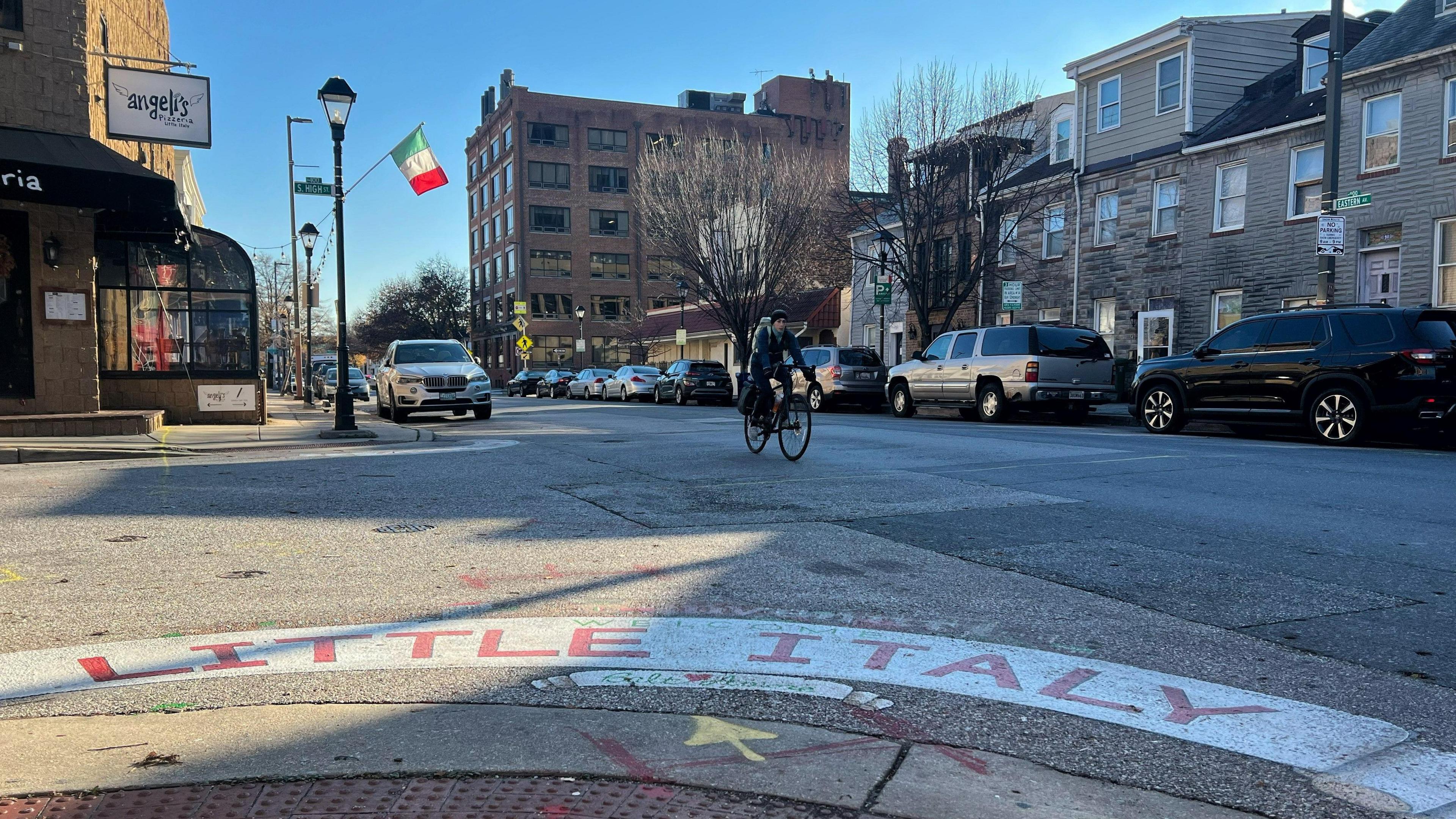
- Published
This week, the surname Mangione became associated with the killing of health-insurance executive Brian Thompson in New York City, when 26-year-old Luigi Mangione was charged with his murder.
But for decades, the name has meant something entirely different: wealth, power, prominence, philanthropy - particularly within the Italian community of Baltimore.
They're one of, if not the, "most respected" Italian families in the area, according to Giovanna Aquia Blatterman.
Now 77, Ms Aquia Blatterman, who arrived in the US from Sicily in 1953, said she has known three generations of Mangiones.
The family is "generous" and "self-made", she said, while Luigi, who she met briefly about eight years ago, appeared clever, approachable and handsome – "as you can tell".
"Something has occurred with him," she mused, referencing the last several days. "He's two different people."
She also insisted he's innocent until proven guilty: "This is one of the greatest honours of being an American citizen."
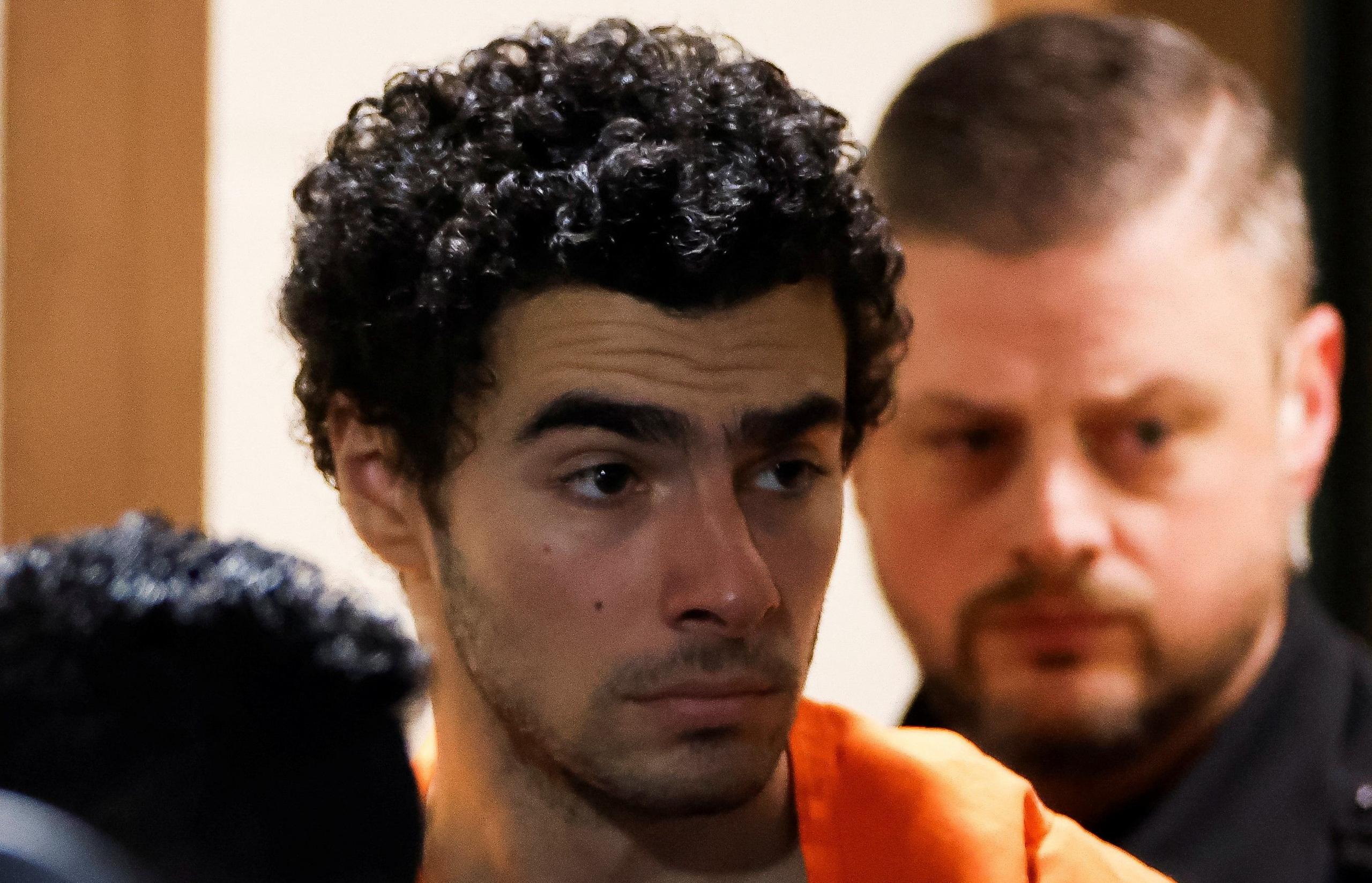
The roots of the Mangiones
The cluster of streets in downtown Baltimore that make up Little Italy, where Ms Blatterman owns one of the neighbourhood's many Italian restaurants, has been an enclave for Italian immigrants since they flocked there in the 1800s and 1900s.
An Italian tri-colour flag is still proudly displayed. Even fire hydrants are painted green, white and red.
Nicholas Mangione Sr was born there in 1925, starting life in a poor immigrant family. He spent the first eight years of his life in a one-room flat with an outdoor privy toilet, according to the Baltimore Sun, external.
During World War Two, he served in the Navy in the South Pacific before returning to his Maryland home where he built a series of enterprises as well as, according to local media, a combative - even aggressive – reputation when it came to his business interests.
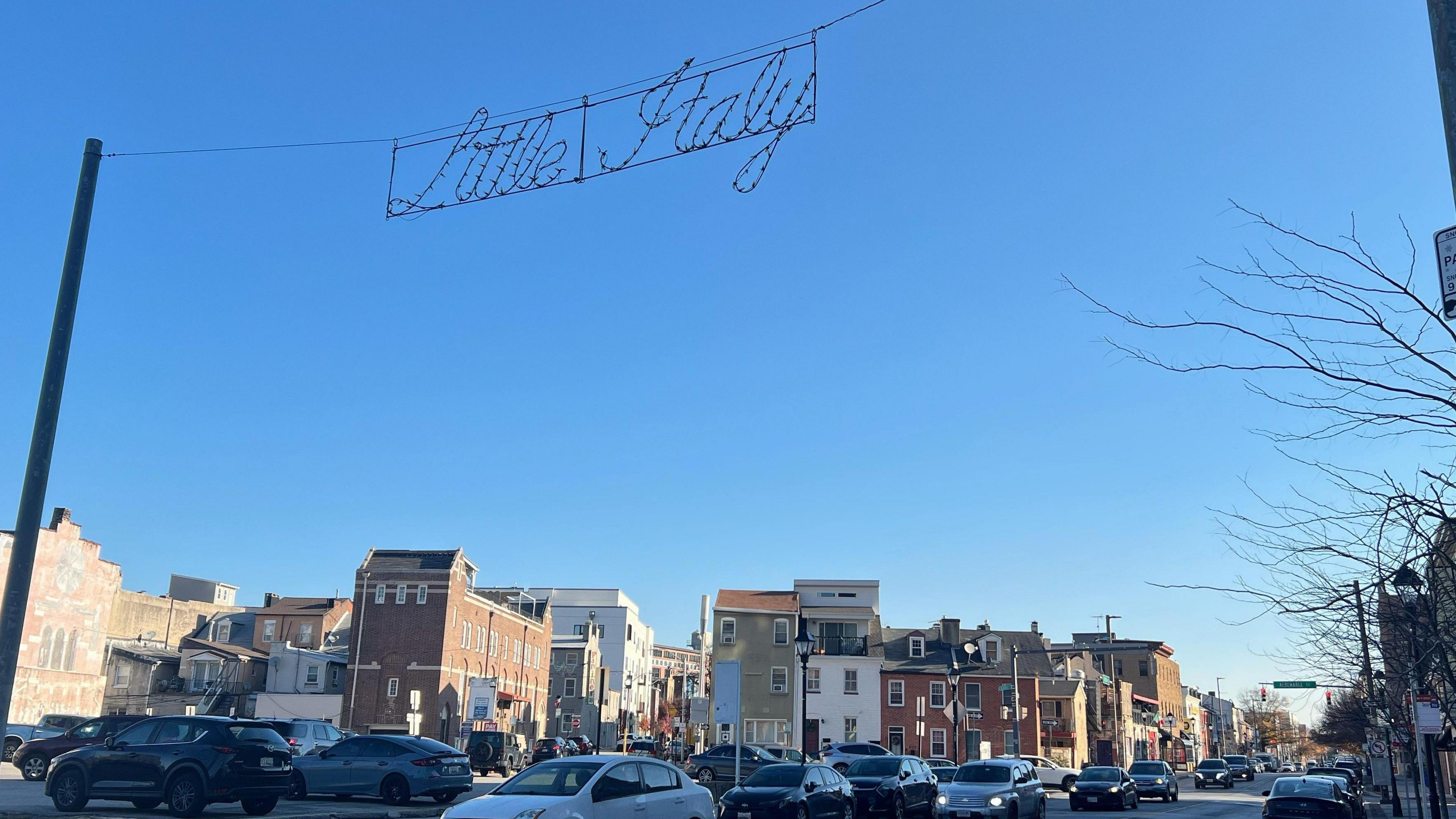
In a 1995 story about him titled 'Fiery builder has softer side', Mr Mangione recalled buying the Turf Valley resort, which lies to the west of Baltimore, in 1978.
"People thought I needed money from the mafia to buy this place. They asked me what family I belonged to. I told them, 'I belong to the Mangione family. The Mangione family of Baltimore County.'"
In 1988, Turf Valley was at the centre of a racism row when the then-manager - Mangione Sr's now deceased nephew - was recorded using a racial slur. The incident made local news.
But within Baltimore's tight-knit Italian community, there's loyalty to Nick Mangione and his memory. Life-long Little Italy resident, 83-year-old Mary Ann Campanella, called him an "excellent man".
"If you went to him (for help)," she said, "and he looked at you – you got it. He helped everyone."
The family patriarch - who long ago had moved his expanding family out to the suburbs - died in 2008, leaving behind 10 children, and 37 grandchildren, including Luigi Mangione.
Luigi Mangione's childhood
When he was arrested, police say Luigi Mangione was carrying a hand-written document detailing his alleged "ill will" towards corporate elites, which US media have reported included the line "these parasites had it coming".
Unlike his grandfather, Luigi was born into privilege, attending an all-boys private school in a northern Baltimore suburb, where fees can reach $37,690 a year.
From a rainy Baltimore roadside, the sprawling campus of the Gilman School is visible, including its centrepiece, a double-fronted, 1920s red-brick hall behind which are extensive sporting grounds.
One family associate likened it to Eton, the English boys school attended by aristocratic familes and members of the Royal Family.
Many have wondered how this 26-year-old man went from being a young, promising graduate to an alleged fugitive, arrested in a Pennsylvania McDonald's.
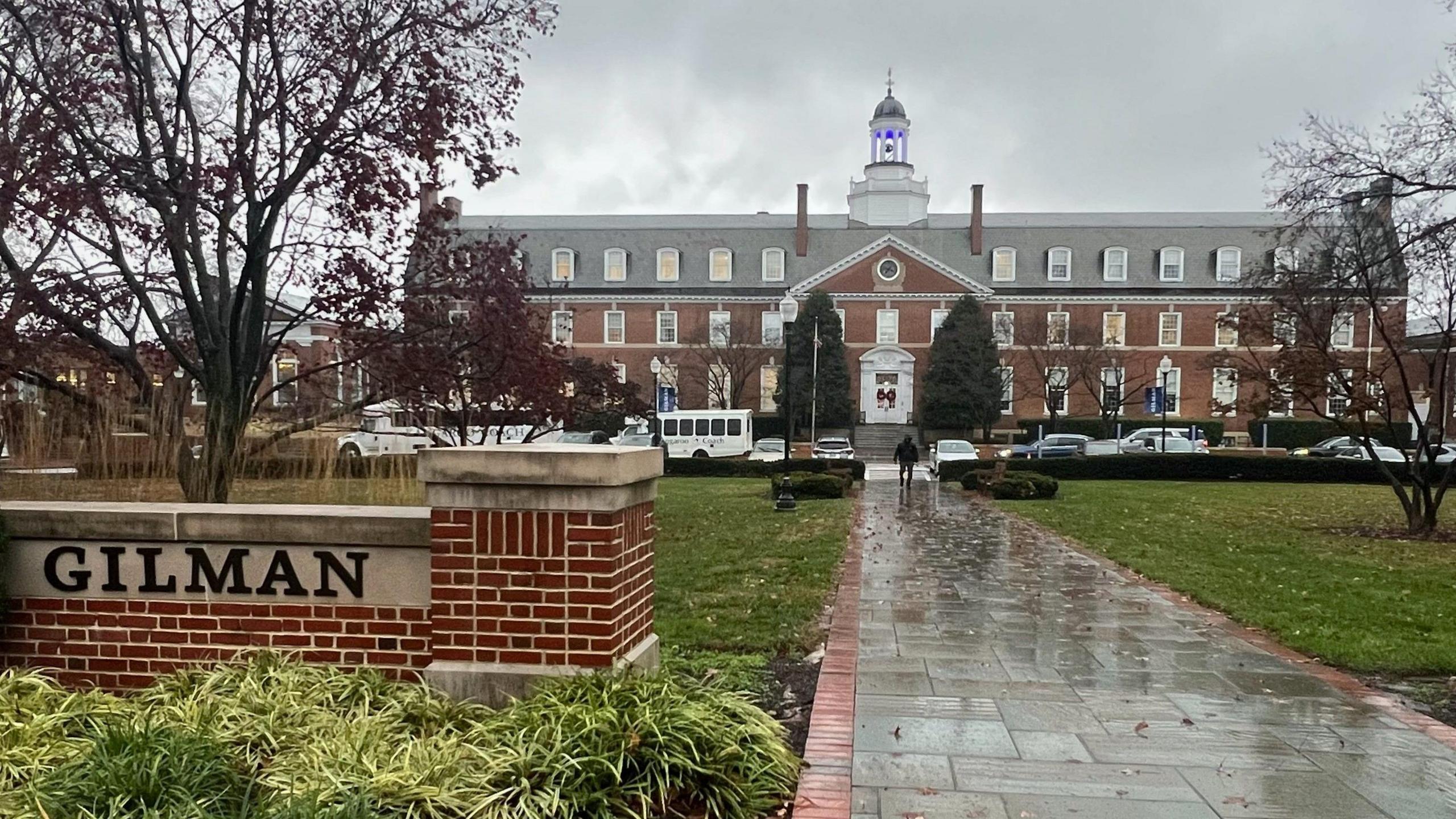
The Mangiones boast a wealth of cousins, aunts and uncles, who have spread well beyond Little Italy. But the family has remained largely silent following Mr Mangione's arrest, only releasing a short statement via Republican state lawmaker and cousin Nino Mangione to say they are "shocked and devastated".
Requests to talk to family members were met either with no response or a firm, but polite: "No comment."
One simply told us: "Everything that needs to be said has been."
Dylan Segelbaum, a reporter for local news website the Baltimore Banner, said that as Luigi Mangione grew up, his family owned businesses ranging from country clubs and golf courses to assisted living facilities.
"The Mangione family is prominent in the Baltimore area," he said.
The Mangione legacy
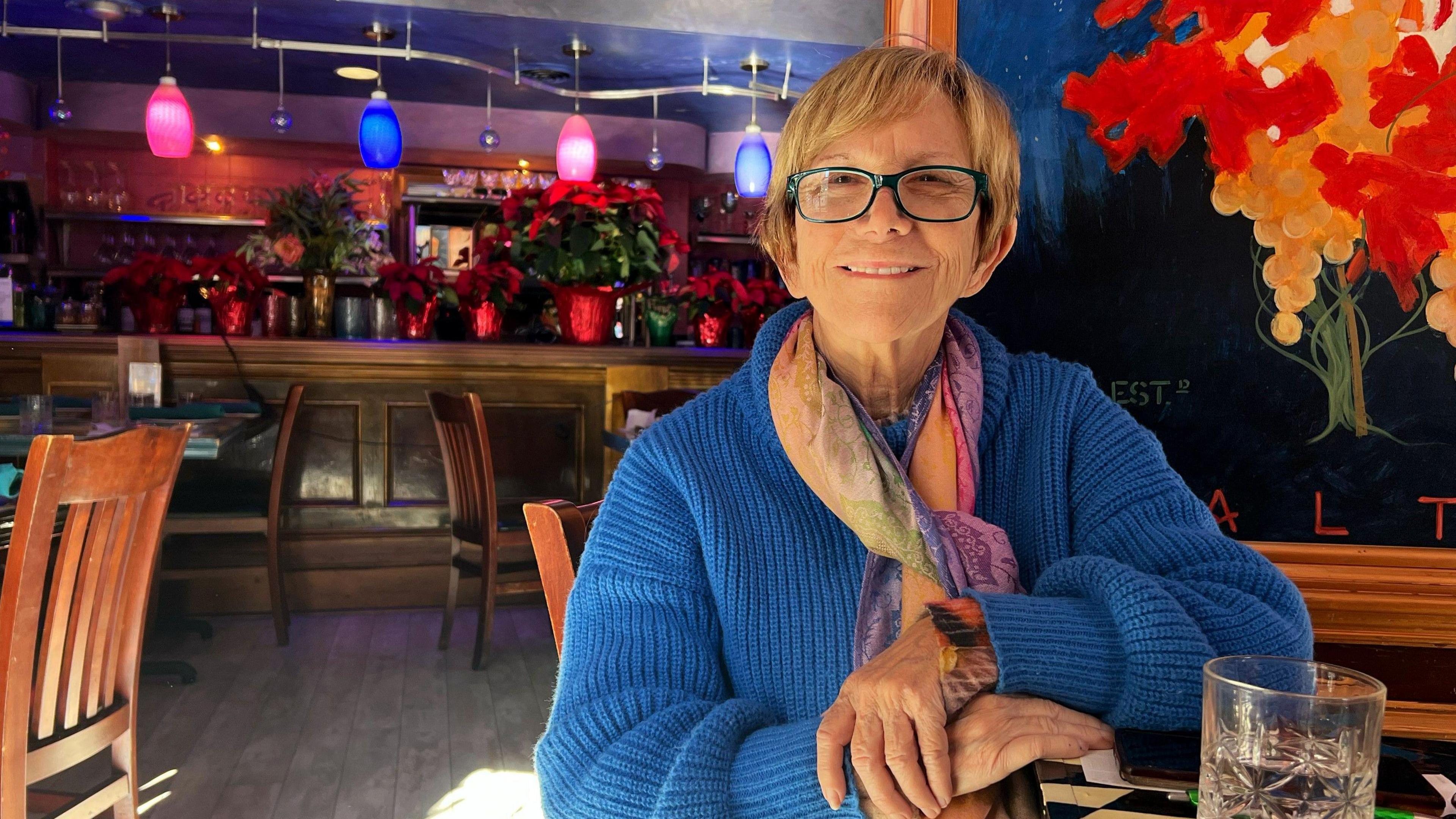
Giovanna Aquia Blatterman
The name is literally imprinted on Baltimore.
A plaque at the entrance to the Family Center at the Greater Baltimore Medical Center reads: "Donated by Nicholas and Mary Mangione."
"The family's very philanthropic," Mr Segelbaum said, noting the family gave more than $1m to the hospital.
But Ms Blatterman insists the Mangiones have remained "relatable" and don't "showboat".
Previously a salon stylist, Ms Blatterman said she cut the hair of Luigi Mangione's grandmother Mary Mangione, who she calls "Miss Mary", in the early 1970s.
And, before the Covid pandemic, she said she played bocce (an Italian bowling game) with members of the Mangione family, including Luigi Mangione's parents, Louis and Kathleen Mangione.
"Kathy has a travel agency. She does trips to Italy," she said.
While she expressed sympathy for the family of Mr Thompson, 50, the health-executive fatally shot on 4 December, Ms Blatterman said her thoughts are also with the Mangiones.
"I can't imagine what the family's going through. I'm sorry about Mr Thompson, they're going through hell, too - but so is this family going through hell."